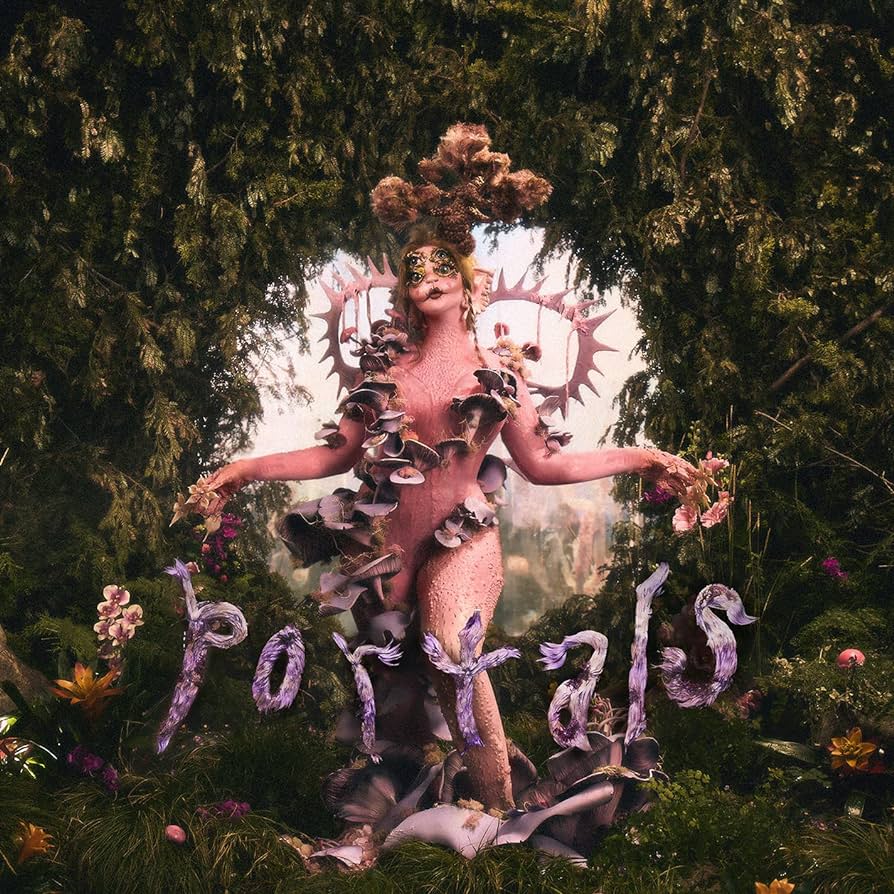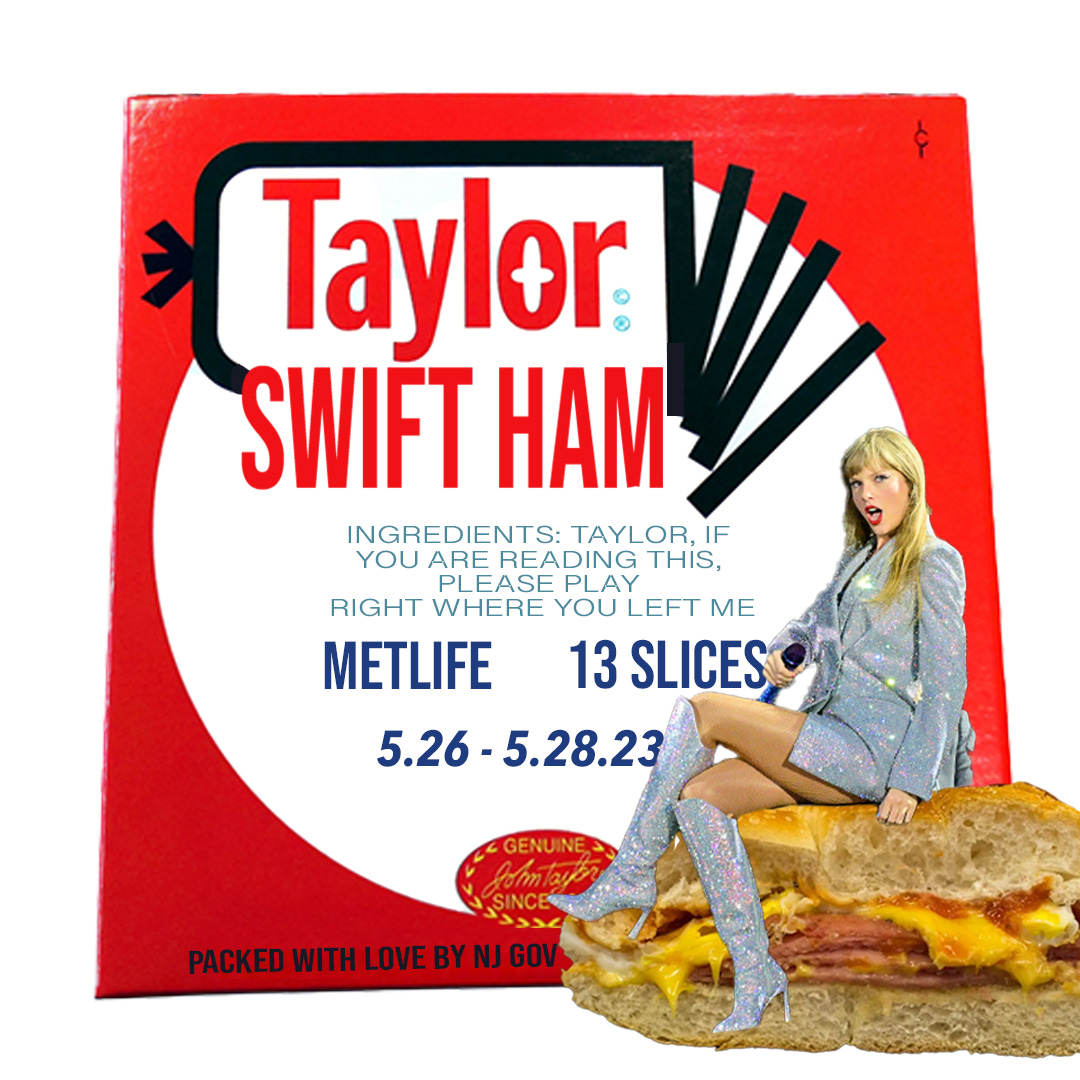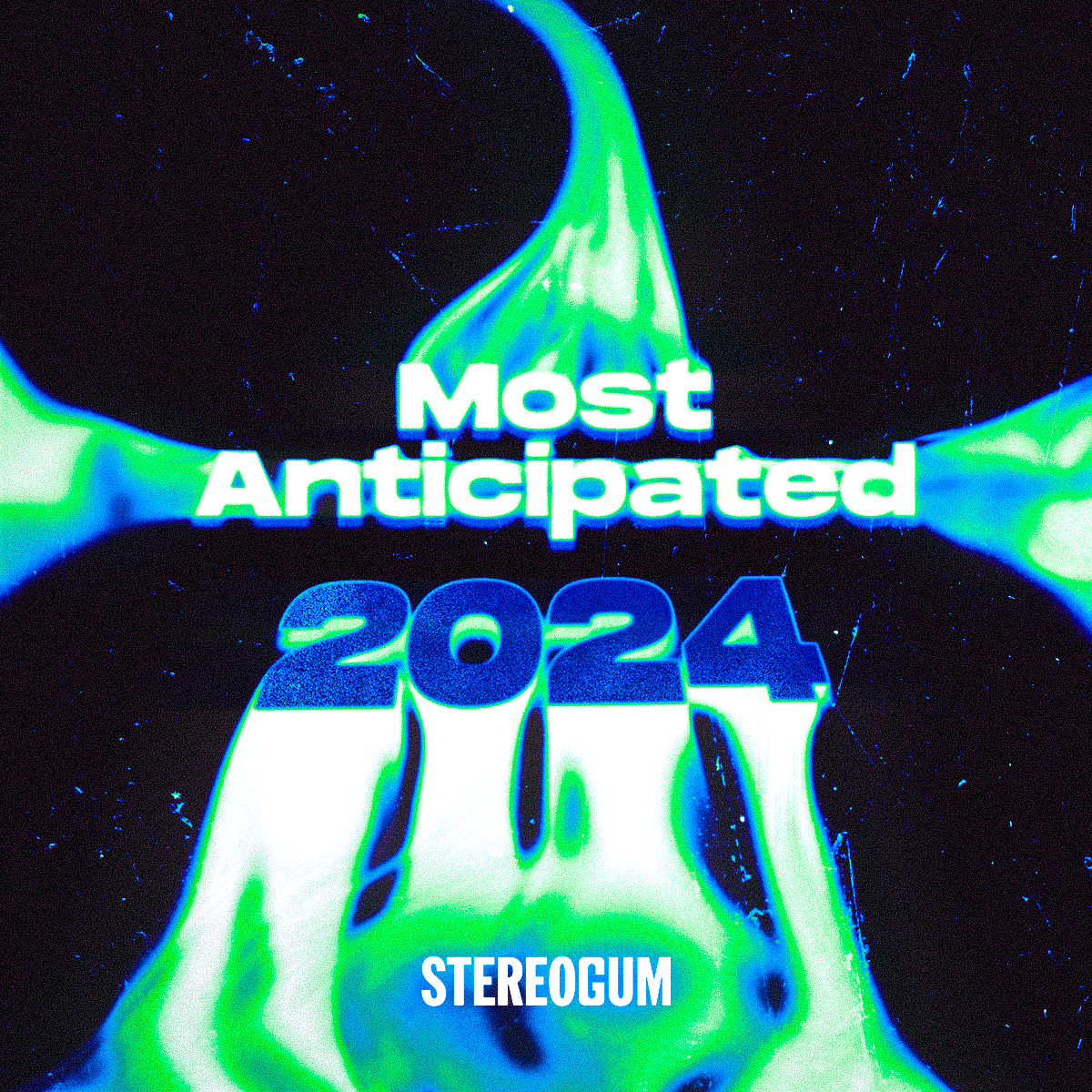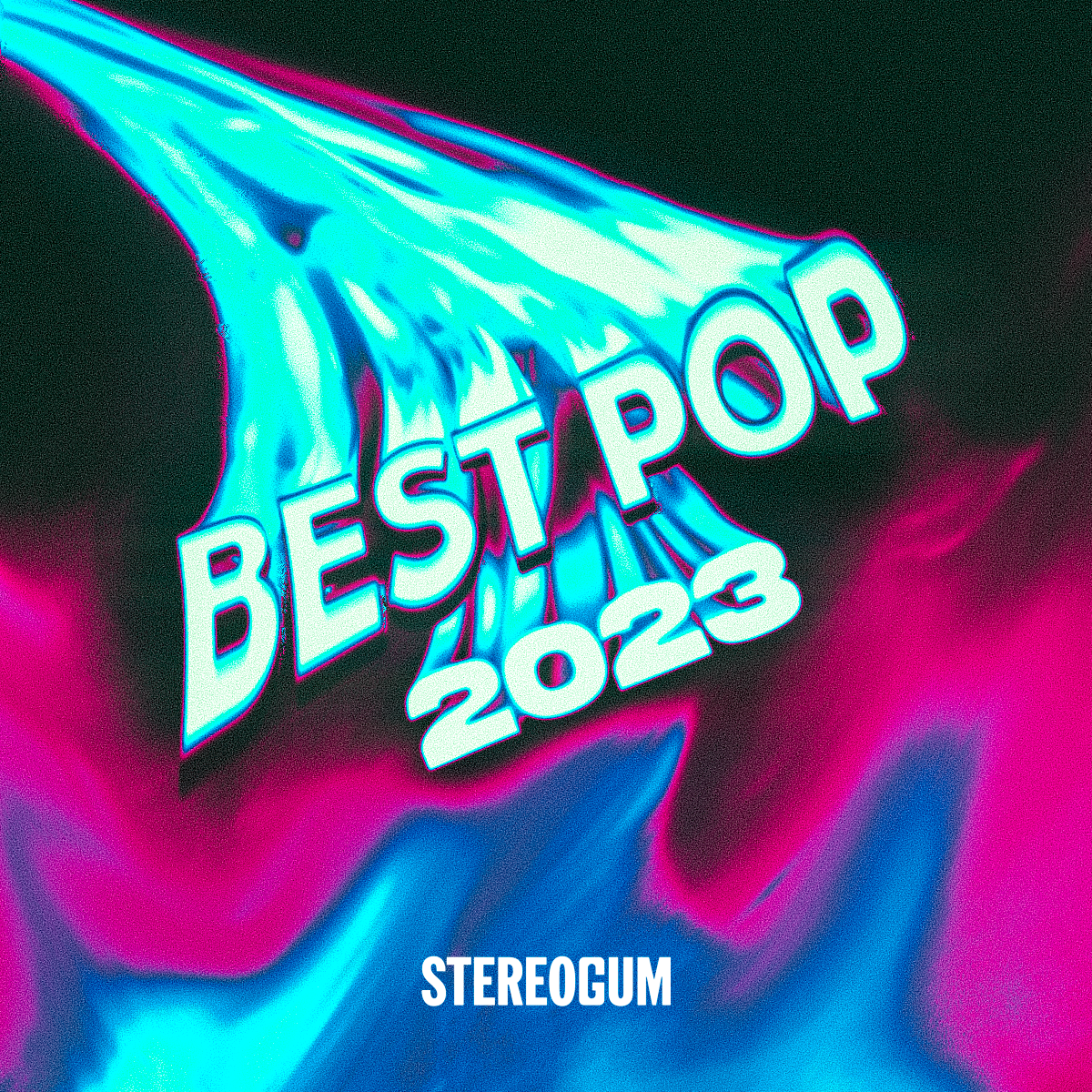The dichotomy of 2023: we had an amazing year for music, in terms of listeners having access to seemingly endless troves of virtuosity and bangingness. We also had a depressing year for music, in terms of the environment in which that music is made. Following are eight of the worst developments over the year.
1. THE IMPLOSION OF THE MUSIC TECH INDUSTRY
For the last several years, the tech industry has been in a spiral of laying off their workers and enshittifying their services. This spiral is largely self-inflicted, a combination of widespread panic, smaller companies following the lead of the Facebooks and Googles of the sector, and the fact that the layoffs actually made technology stock prices go up in the aggregate. Because the act of releasing, marketing, and hearing an album in 2023 is inextricably touched by several tech companies, this doom spiral has sucked in people all over the music industry — artists, fans, employees, distributors, bookers — while rotting everything it touched. Thus, it is unquestionably the worst music trend of 2023. A few lowlights:
Spotify: Laid off workers three times this year, leaving a total of 2,300 people jobless. They also announced in 2024 that they would no longer pay royalties on songs with fewer than 1,000 listens, a decision they claimed was meant to punish spammers and distributors sitting on small-time musicians' profits. But it's impossible to talk about how you’re cutting off pay to "a population of tracks that today, on average, earn less than five cents per month," as Music Business Worldwide put it, without sounding like a spectacular asshole. One might stop to consider why that is!
Bandcamp: The tremendous indie institution was already in a questionable place after Fortnite developer Epic Games bought it, a decision that united listeners and gamers in bafflement. When Epic's ambiguous cross-media metaverse plans for Bandcamp inevitably fell apart, the company sold it this year to the ominously named Songtradr. Cue layoffs: specifically, half the company’s employees in October, including their tremendous curation blog Bandcamp Daily.
Amazon: Quietly laid off workers in creative roles throughout the year, including their music teams in Latin America, North America, and Europe.
Tidal: The streaming service, once owned by Jay-Z and now owned by Jack Dorsey's Square, laid off 10% of their workers, including some of its music curation team.
SoundCloud: Laid off 8% of their workers.
LimeWire: No layoffs (yet), but we list it here because it exemplifies another form of tech enshittification: private equity companies purchasing dead brands and turning them into zombie hypebeasts. Formerly known as the '00s file sharing service you went to once Napster died, LimeWire has morphed throughout its undead existence into a hub for crypto, NFTs, and now "a free AI Art generator that turns your words masterpieces." Buried in the website’s menu, there is also music; the lineup includes such bangers as "Summer Day Renaissance of Aphrodite with Rapids and a Handsome Woman," "Hustle Daily Digital Marketing," and "MTA H Train as a track." In the interest of journalistic accuracy, I listened to the last one. It wasn't great.
2. CULTURE WARRIORS SEND ARTISTS TO NO. 1
A depressing rule of entertainment: whenever an artist is accused of bad or offensive shit, it frequently helps their career. This is particularly true in the digital age, as fanbases reconfigure themselves into armies for a cause, paving the path for the artists’ redemption tour by spamming streams and mass-purchasing digital downloads. (That last one is an old stan tactic; 99-cent iTunes downloads count more toward Billboard's chart algorithm than streams do.) And streaming platforms, noticing that these supposedly canceled artists aren't quantitatively canceled, often stay out of fans’ way and abandon any efforts to deboost them. As Rich Juzwiak reported in Jezebel, R. Kelly's listen counts doubled after the exposé Surviving R. Kelly aired, and he was not an outlier.
This year saw a particularly noxious variation on the trend. For most of the summer, the No. 1 hit became No. 1 because of the sheer numbers of fuck-you downloads. But those downloads weren't coming from aggrieved fans. Instead, conservative listeners decided, out of some combination of "finally, real music" and "stick it to the libs," to channel their culture-war outrage into stan tactics and send some truly unfortunate songs to the top of the charts to pretend to be hits, in place of the summer jams we could have had. From earliest to latest:
Morgan Wallen, "Last Night”: The precursor and exception. Morgan Wallen, as a refresher, is the country singer who was not actually cancelled for being caught on video using the N-word. Did "Last Night" make No. 1 based on revenge listens? I mean, there were probably some, but the charts were already being gamed by pretty much every stanbase in much the same way, so the numbers likely evened out. And Wallen is a massive star, genuinely in the Taylor Swift/Bad Bunny echelon of enormous streaming numbers. Unlike the other two people on this list, his career will basically be fine — which is corrosive in its own way.
Jason Aldean, "Try That In A Small Town”: Aldean, like Wallen, is a country star. Unlike Wallen, Aldean is past his prime; his last No. 1 single on the country genre charts was 2014's "Burnin' It Down," and he hadn't cracked the top 10 on the main Hot 100 since 2011's "Dirt Road Anthem." And unlike "Last Night," a midtempo country song that's inoffensive in everything but its performer, "Try That in a Small Town" is deliberately provocative, the far-right slogan "when the looting starts, the shooting starts" set to music. Though the song came out in May, it only went No. 1 after its video sparked outrage in July for projecting Black Lives Matter protest footage onto a Tennessee courthouse where a Black teenager was lynched in 1927. The backlash came almost immediately, as did the streams. As Rob Harvilla wrote in The Ringer, "Wallen is a crossover chart superstar despite the culture war; Aldean is solely because of it." Unfortunately for Aldean, this kind of superstardom is fleeting; his next single, "Let Your Boys Be Country," has done basically nothing chartwise since its release last month.
Oliver Anthony, "Rich Men North Of Richmond”: Yet Jason Aldean was bigger than Jesus compared to the next benefactor of the culture wars: virtual unknown Oliver Anthony and his country-ish No. 1 single "Rich Men North Of Richmond." Despite the song's rough edges and muddy politics — far less ideologically coherent than Aldean’s — it went viral among conservative influencers like Jack Posobiec and Joe Rogan. To Anthony's "aggravation" (so he claims), they organized a temporary stanbase overnight and made a quasi-hit out of a Fudge Rounds diss track. Needless to say, Anthony has yet to chart again either.
3. BOOMER ARTISTS ACHIEVE FLEETING RELEVANCE VIA GIMMICKS
What if you want to chase listeners without stoking the country's culture wars? Perhaps you're an older group finding that the old-fashioned route of releasing good music isn't working for you anymore? Not to worry! There’s another way: the extramusical internet trolling that worked in the early 2010s and still works today. The headlines will be yours, and perhaps even the charts; who cares whether anyone will listen to the music next year?
The Beatles (so-called AI): The Beatles' first song since 1995, "Now And Then," is a demo that John Lennon recorded with piano accompaniment shortly before his death and was later reconstructed by the remaining Beatles and documentarian Peter Jackson. As the music press breathlessly reported, the band did this through the power of AI! The "AI" in question was just a more complex version of audio isolation techniques that producers have used for years. But by using the magic A-word, the band stoked people's curiosity about and/or disgust with a deepfaked Lennon without actually having to make one, and they rode the ensuing hype train all the way to No. 1 in the UK. The song is quite pretty! But it will forever be "the AI Beatles song,” and few people will remember anything else.
I asked AI to draw the Beatles drinking the platonic ideal of a cup of tea and it's invented an additional Beatle and I can't decide which one isn't the real Beatle. pic.twitter.com/j9B6uo6Axs
— robmanuel (@robmanuel) December 20, 2023
Smokey Robinson (gasms): Speaking of the Beatles, do you remember Paul McCartney's recent song "Fuh You"? How about Brian McKnight's 2010s offering "Let Me Show You (How Your Pussy Works)"? Unless you are extremely online, you do not. Even if you are, could you hum a few bars from memory? I can't! Likewise, soul legend Smokey Robinson's first album since 2009 is called Gasms, a fact that will forever be the only thing most people know about it. It's not that older artists can't or shouldn't sing about sex, explicitly or otherwise. It's the coyness and the backpedaling — Robinson clarified that "‘gasms’ is any good feeling you might have," and marveled in the lyrics about "eyegasms" and "eargasms." And it's the implicit admission that no matter how good these legends’ music was (Gasms is better than the McCartney track, at least), mass audiences need to be tempted with sexy viral juice to hear their newer work.
The Rolling Stones (Euphoria, Blur beef): Ahead of their album Hackney Diamonds, the Rolling Stones cast Sydney Sweeney of Euphoria as a Stones groupie in the music video for single "Angry." Casting a popular actress, admittedly, isn't much of a gimmick on its own; in 2006, the band put Kristen Stewart in "Ride 'Em All Down." But casting this particular actress felt like the Stones deliberately tapping into the pre-existing clicky discourse about whether Euphoria and its creator Sam Levinson hypersexualized Sweeney, and where one might see such a terrible thing for themselves. At the very least, it felt that way for Damon Albarn, who tore into the band for seeing "this young woman objectified" in the video. (Sweeney, for her part, disagrees.) Incidentally, Blur also released an album in 2023. This may be how you found out.
KISS: You wanted the farewell, you got holograms.
4. MUNICIPAL GOVERNMENTS AND LOCAL ESTABLISHMENTS GET INTO A SWIFTIE-PLEASING ARMS RACE
You could say this is cute! It gives local governments some extra tourism revenue and local politicians some uncontroversial positive press. It gives local newspaper reporters, even those who aren't on the full-time Swift beat, an easy, feel-good feature and a chance to work their lede-writing skills with a Taylor pun. (And it gives nationwide music blogs an excuse to do the same.) You could try to turn this into a big statement about the genuflection-inducing pull that the pop 1% has over politicians. But really, all that needs to be said is that this is deeply corny. An abbreviated timeline, lest we be here for an era ourselves:
Glendale, Arizona: Temporarily renamed itself "Swift City." Unimaginable, but excusable; they knew not what they started.
Las Vegas, Nevada: Lit up the Gateway Arches before each show in an Eras-inspired rainbow. Honestly, also excusable; it's Vegas, this doesn't even register for them.
Arlington, Texas: The bandwagon officially begins. In a pun-filled press-release, the city of Arlington acknowledged those who memed before them: "We don’t have any 'Bad Blood' with Las Vegas … but never in our 'Wildest Dreams' would we go so far as to 'Change' Arlington’s name as our friends in Glendale, Ariz., did." (The AP Style "Ariz." abbreviation makes this, don't you think?) They gave Swift the symbolic key to the city, renamed Randol Mill Road to Taylor Swift Way for the weekend, and lit City Hall's sculptures up in selfie-baiting Red lighting.
Tampa, Florida: Mayor Jane Castor named Swift her honorary replacement, dubbed the area "Tampa (Taylor's Version)” and gave her the key to the city. Like Arlington, she mentioned the last couple tour stops’ gimmicks, but bragged about "going bigger": "Here in Tampa, we've got a Reputation to uphold." Observant readers will note that Glendale, Vegas, and Arlington had already done everything Tampa did, and that in no way did Tampa go bigger. Truly, they have embraced Swift's heel era.
Minneapolis, Minnesota: Renamed itself "Swiftie-apolis" — quite the accolade for a person who, to our knowledge, has never purified herself in the waters of Lake Minnetonka. (If you're wondering, Prince had a highway named after him and some Congressional Gold Medal lobbying on the city's behalf.)
New Jersey: For years, New Jersey has had inter-state beef, akin to the West Carolina/East Carolina barbecue wars, about whether its signature processed pig sandwich (beloved of Halsey among others) is properly called "pork roll" or "Taylor ham." Governor Phil Murphy, seizing the easy setup, announced in a video and official proclamation that the state sandwich would henceforth be called "Taylor Swift Ham Egg and Cheese." Lightly alienating half your constituency — risky!
Chicago, Illinois: After Taylor Swift accidentally swallowed a bug on stage in June, the bar Replay Lincoln Park commemorated the occasion with a pop-up event (another deeply corny thing, always) featuring the "Bad Bug" cocktail of vodka, tamarind, chili pepper, watermelon, pineapple and ginger beer. Very on trend with the spice, but ultimately low effort: no bug inclusion or allusions whatsoever. As gimmick cocktails go, it's definitely no Sourtoe.
Rio de Janeiro, Brazil: The dedication of Brazilian pop music fans is legendary. Among those fans is mayor Eduardo Paes, who reportedly called Swift "the Madonna of our time." Brazilian Swifties petitioned the mayor online to deck out the city's legendary Sanctuary of Christ the Redeemer statue in a projected "You Belong With Me" shirt. The statue had gotten similar makeovers before (albeit for more serious causes), and the sanctuary rector said he'd do it if fans bought enough water and panettone for the Catholic Church’s World Day of the Poor. In came the bread, and on went the shirt – sweetened with a few more Easter-egg references to Swift's discography. This one actually feels different, being more bottom-up than the last few. Sadly, the next entry on the list would overshadow it.
Pennsylvania: A resolution to officially declare 2023 "the Taylor Swift era" in the pop star's home state narrowly passed earlier this month. "House resolutions are not legislation and their consideration should not be a function of our government," said a dissenting Rep. Wendy Fink. "I urge a ‘no’ vote on this resolution and suggest we get back to actually governing." PA House Speaker Joanna McClinton responded, "For the member’s information, house resolutions are legislation. And apparently the haters gonna hate, hate, hate, hate, hate." *Ice Spice voice* Facts.
5. CONCERTS AND FESTIVALS BOTCHING SAFETY (EVEN MORE)
In 2021, 10 people died and hundreds more were injured during a crowd crush at Travis Scott's overbooked Astroworld festival. Incidents like this are seldom the result of one bad decision, or even "mistakes" per se, but of a cascade of deliberate bad choices: cost-cutting, over-booking, under-staffing, and a general willingness to operate closer and closer to the danger line if it proved profitable. After Astroworld, there was some optimism that the industry would reckon with these events. Instead, they just got worse.
The Rio de Janeiro Taylor Swift show: The Brazil leg of Swift's Eras tour happened during a country-wide heat wave. On November 17, the heat index (a measure of temperature and humidity) was 138.74 degrees Fahrenheit. These are not ideal conditions to be outdoors for hours with 60,000 other people, as attendees of Swift’s show did. And by all accounts, the Brazil shows' promoter, T4F – Time For Fun, made them worse. T4F reportedly made fans wait in the heat for hours amid "chaotic" organization, then prevented them from bringing food and water onto the show grounds, forcing fans to fight through crowds for expensive, limited water. Firefighters estimated that over a thousand people fainted at the show, including Ana Clara Benevides Machado, a fan of Swift who was rushed to the hospital during Swift's second song and later died of cardiac arrest. The show, temporarily, went on; fans within sight of the stage begged Swift to pass out water (which she did). And in the aftermath, social media was full of rumors, speculation, and attempted reporting about Machado's death — a bleak replacement for the communication the concert promoters didn't provide. Even Swift said, on Instagram, that she was given "very little information."
Blue Ridge Rock Fest: September's fest, which touts itself as "North America's Largest Rock & Metal Festival," was abruptly evacuated on its first day after a severe storm hit Virginia, ending the event for the year. As the festival's PR team posted mild apologies and accusations that "alot lies and rumors" were circulating, reports from the scene emerged en masse online. Attendees waited hours to get bused out, and several reportedly had to shelter inside porta-potties. Those porta-potties were often overflowing or filthy, as were the festival grounds where garbage overflowed trash cans throughout; the Virginia Department of Health received several complaints of diarrhea and gastrointestinal illness from attendees. Workers had it even worse, provided with moldy showers, grueling shift lengths, little food or water, and poor communication about everything; many of them went on strike. On YouTube, Electric Callboy's manager Ian Roberts posted a 37-minute evisceration of the event's treatment of stagehands, calling it "the most unprofessional, unorganized, unsafe pile of shit festival I've ever seen in my life."
Electric Zoo: Also in September, the New York EDM megafestival canceled its Friday lineup after admitting they hadn't finished building the stage, blaming "supply chain disruptions." Saturday was delayed for several hours, and once the festival finally opened, staffing was sparse, some stages were still broken or unfinished, display screens reportedly glitched out, and several bands didn't get to play. By Sunday, the festival admitted that they were over capacity, prompting fans to storm the barriers and overrun the grounds. Videos circulated of stampeding crowds, closed roads, belligerent security guards, and general chaos. While police largely blamed rowdy fans for the fiasco, at least four lawsuits were filed in the following weeks against entertainment company Avant Gardner, which purchased Electric Zoo in 2022. The company had become notorious for poor management practices, including overselling shows by as much as 33%, and was already under scrutiny after one of its venues, the Brooklyn Mirage, became known for a string of unexplained deaths.
6. ACQUIRING CONCERT TICKETS IS SO HARD, ARTISTS FEEL THE NEED TO APOLOGIZE
We wrote last year about Ticketmaster's "Verified Fan" program and the bloodbath of scalping and competition for tickets that came with it. Since then, Ticketmaster's business practices have been the subject of a Senate investigation and a backlash by artists and fans that's almost as unanimous as the company's monopoly is total. Drawing particular ire is Ticketmaster's "dynamic pricing”: a euphemism for jacking up prices — often into the thousands — in response to demand, the way airplane or Uber fares work. Ostensibly intended to shut down resale sites like StubHub, this practice usually just results in exorbitant ticket prices coming from the official sellers rather than the scalpers.
For the most part, fans have blamed Ticketmaster for this. But some of them have criticized musicians from Bad Bunny to Bruce Springsteen, arguing artists can either opt out of the program explicitly in the Ticketmaster platform or use their celebrity clout to set their own prices. There's a lot of unreliable reporting around this; the closest thing to the answer seems to be "artists can, but it's complicated." But amid the confusion over who to blame, many artists have pled, somewhat defensively, for fans not to blame them because the system affects them too. Is this solidarity? Well-paid celebs being out of touch? At the very least, it's something that shouldn't be necessary. "It’s truly amazing that 2.4 million people got tickets,” Taylor Swift said last year, "but it really pisses me off that a lot of them felt like they went through several bear attacks to get them.” Here’s what artists had to say in 2023:
Robert Smith
https://twitter.com/RobertSmith/status/1636188988238077953
Hayley Williams
Mother https://t.co/pJGK7LyXQa pic.twitter.com/ngE2AAKHTq
— Babs (@lttldgnty) April 15, 2023
Zach Bryan
https://twitter.com/zachlanebryan/status/1699147963317023150
Maggie Rogers
@maggierogers fuck bots + fuck fees. buy a ticket in person. tomorrow only. link in bio.
♬ Symphony - Maggie Rogers
Honorable mentions: Pearl Jam (who have been after Ticketmaster since the 1990s), Jack Antonoff, Farm Aid, Oliver Anthony(!).
7. ALBUM COVERS WITH WEIRD MASKS
This trend isn't so bad compared to the rest of this list. We're not opposed to creepiness, and we're certainly not opposed to masks. There's creativity and mythmaking to be had in obscuring one's face for the art. This year's masks, though? Not totally doing it!
Kevin Abstract, Blanket: A tempest in the teapot that is the Brockhampton subreddits this year were fans' opinions of the relative merits of Kevin Abstract's Blanket album covers, which were swapped out mid-promo cycle for the unremarkable profile pic the album uses now. We prefer the cover with Abstract, face bloodied, giving hugs to a couple of shaggy mascots who exude the vibe of Sesame Street puppets that had been used as bathmats a week too long.

M83, Fantasy: One expects certain emotions after hearing about a new M83 album: optimistic awe, 2000s nostalgia, the comfort of familiarity. Not among those feelings: trypophobia.

Melanie Martinez, Portals: The album cover itself isn't so bad, goes with the whole baroque goblincore entrails thing. The perfume bottle, which uses the mask as its stopper, is another story: not creepy so much as an off-brand Transformers. This is a real deep cut, but does anyone remember the Adiboo games? This is that, yassified.

Weird, But Maybe Just An English Breakfast Thing: Bombay Bicycle Club, My Big Day : Chaka Khan agreed to be on this album before she saw the cover.

Weird, But Not Actually An Example: Fever Ray, Radical Romantics: The Knife made Silent Shout and owned the plague masks for years; they get a pass.

All of these covers are better than the "Atomic City” art, incidentally.
8. FANS THROWING UNSOLICITED, INCREASINGLY ARCANE ITEMS AT ARTISTS
This one isn't so new. As long as musicians have had hundreds of rapt fans within chucking distance of the stage, some of those fans have pelted their idols with random shit: panties to phones, toys to Solo cups. Music forums abound with tales of concertgoers losing their better judgment and artists losing their shit. The key word here is "unsolicited"; some musicians encourage this chaos — to a point. (The bat whose head Ozzy Osbourne famously bit off in 1982 was thrown onstage by an audience member; yes, Osbourne publicly encouraged fans to coat the stage in animal guts, but here he expected a rubber bat, not a live carrier of rabies and thus potential death.)
But this decade has been something else; Wikipedia has an entire article about "concert abuse in the 2020s.” We touched on it last year, when Harry Styles endured projectile chicken nuggets, water bottles, and Skittles at show after show. Why are we listing it again? Perhaps it's the increased scrutiny of parasocial relationships: how the boundaries between audience and artist can blur in fans' minds until they feel it appropriate to force their idols into an awkward public reaction at best and physically injure them at worst. Perhaps 2023 is just a meaner, more trollish year. Or perhaps it's because the stuff people threw at artists in 2023 has been wild. For instance:
Kane Brown (cowboy boot): Country singer Kane Brown, performing his Marshmello collaboration "One Thing Right" in Wichita, took a thrown country boot directly to the nuts; he had to finish the song while lying on stage. Perhaps feeling pressure to be gracious, he turned the event into stage banter, asking whether the boot was expensive, and then autographed it later.
Lil Nas X (fleshlight): During Lil Nas X's Lollapalooza Stockholm set, his set was intruded upon by a floppy pink object of a certain shape. "Who threw their pussy on stage? What's wrong with y'all?" he asked, Worse, he actually had to touch the thing.
Taylor Swift (friendship bracelets): The wearing and sharing of friendship bracelets was a trend during Swift's Eras tour, implicitly endorsed by Swift in Midnights track "You’re On Your Own, Kid": "Make the friendship bracelets, take the moment and taste it." You might interpret this as braiding and beading your own bracelets and tagging Swift online. You might also interpret it as pelting her with jewelry from the railing as she leaves the show. Swift's lyrics are such an enigma.
Pink (mother's ashes): While Pink was performing "Just Like A Pill" at a London show, a fan threw a bag of gray powder at the stage, presumably labeled. "Is this your mom?" Pink asked. "I don't know how I feel about this," before unceremoniously placing the baggie out of sight. For those of you who've forgotten "Just Like A Pill," the lyric sung before this incident was "I can't stay on your life support / There's a shortage in the switch." So, uh, whatever is going on with that, Alecia Moore didn't need to be brought into it.
e um doido que jogou as cinzas da mãe dele de presente pra @Pink ? kkkkkkkkk #BSTHydePark #SummerCarnivalTour pic.twitter.com/UMABzaayXj
— jomi (@jomas__) June 25, 2023
If you must give Pink a gift, wait for the signal.
Adele (F-bombs): During her Las Vegas residency, Adele fired a pre-emptive warning shot at anyone who dared follow the trend: "Have you noticed that people are forgetting fucking show etiquette in America? I dare you to throw something at me, and I'll fucking kill you." She then fired a literal shot from a T-shirt cannon into the crowd, joking: "Stop throwing things at the artists, but you can shoot things at people!"
With that unfortunate wording, we wrap up the worst of 2023. What, indeed, is wrong with y'all.
Stereogum is an independent, reader-supported publication. Become a VIP Member to view this site without ads and get exclusive content.






